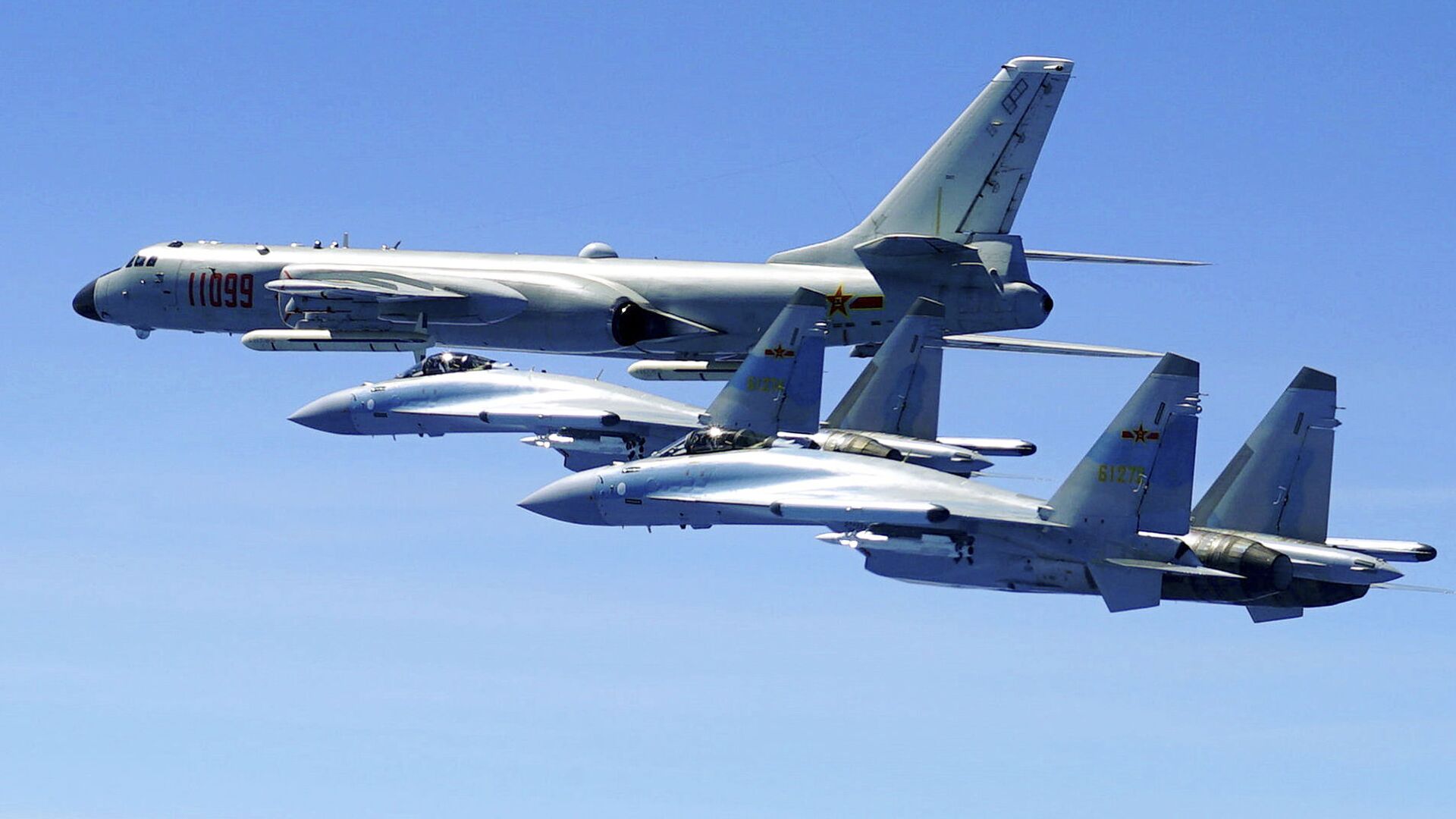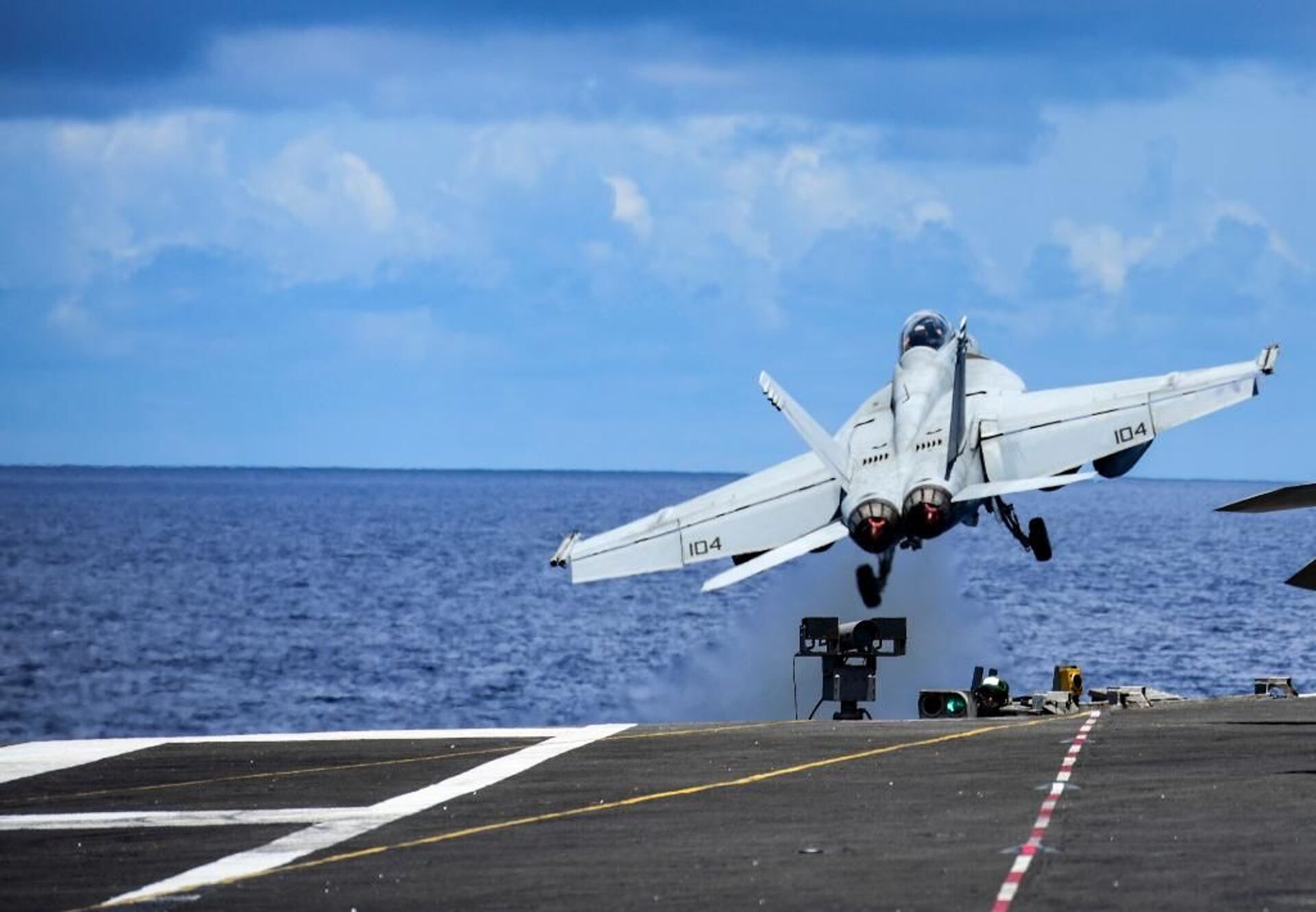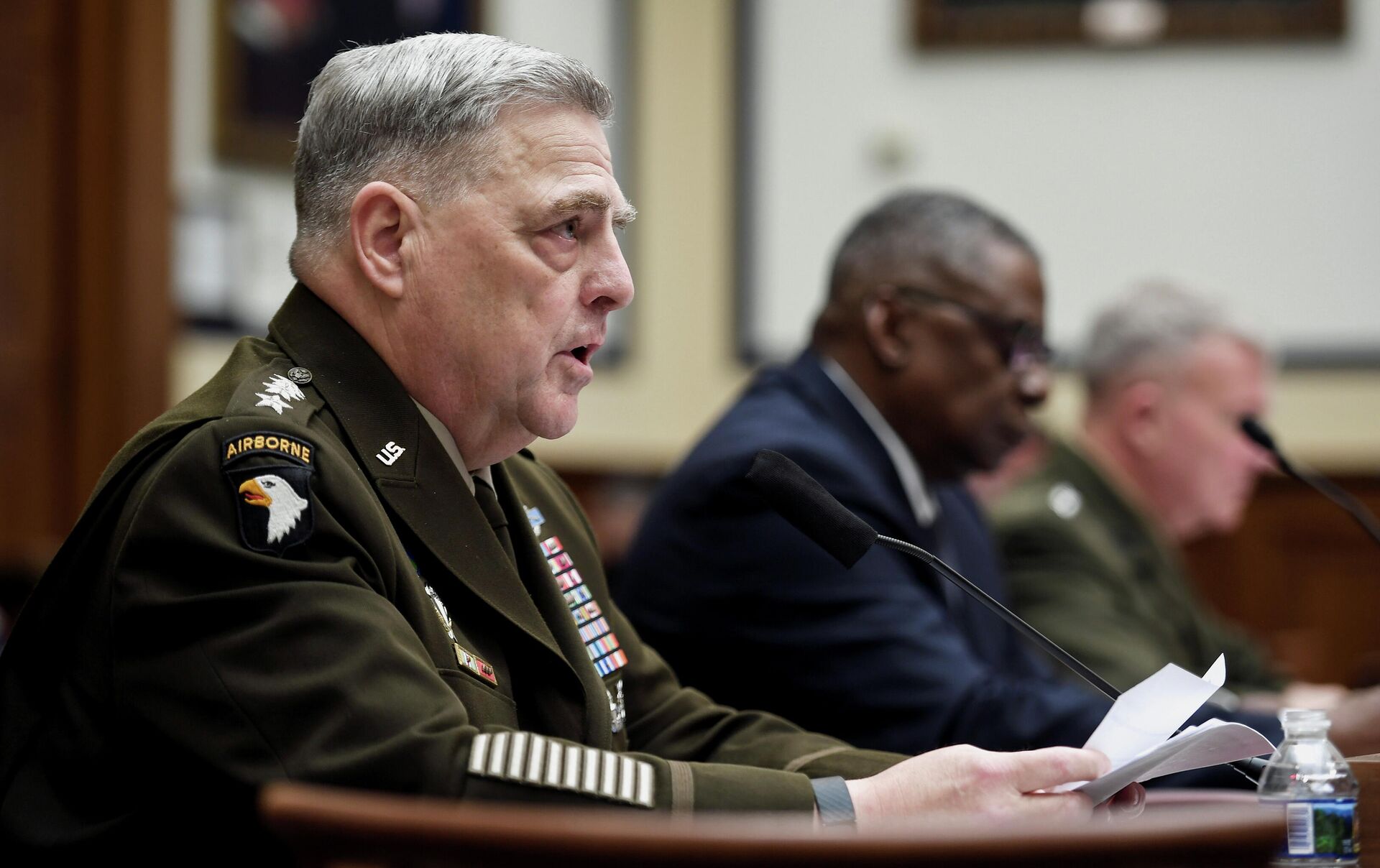The Other Side: Beijing Reportedly Feared Trump Might Goad PLA Into Attack As Early As October 2020
01:07 GMT 05.10.2021 (Updated: 18:35 GMT 19.10.2022)

© AP Photo / Han Chao
Subscribe
After a new book on the Trump administration’s final days revealed a top US general had contacted his Chinese counterpart about a potential US attack, a Chinese official has reportedly confirmed the exchange, describing how on-edge the People’s Liberation Army (PLA) was during that time.
A source inside the PLA told the South China Morning Post (SCMP) on Monday that high-ranking PLA officials feared the US was trying to goad China into a military response in late 2020 by engaging in “provocations.”
This was the time that US Gen. Mark A. Milley, chairman of the Joint Chiefs of Staff and the nation’s highest-ranking military officer, made his first of two phone calls to his counterpart in the PLA, Gen. Li Zuocheng, to reassure them that the US was not about to attack. According to a memorandum given by Milley to the Senate Armed Service Committee last month, the first call was made on October 30, 2020 - four days before the US presidential election.
‘October Surprise’
For months before the election, then-US President Donald Trump had prepared the ground for a refusal to accept its results, particularly by denouncing plans to mail out an unprecedented number of mail-in ballots for safety reasons, as the COVID-19 pandemic raged. However, some feared he might try to cling to power in other ways, as well.
In mid-September 2020, the Washington Post reported that while Trump’s hostility toward China had politically energized his anti-communist conservative base, it had left Chinese officials on-edge as the election neared.
Shi Yinhong, a preeminent Chinese academic and international relations professor at Tsinghua University in Beijing, told the Post that Trump ordering a limited attack on China, perhaps in the South China Sea, or something else extremely provocative, such as giving the Taiwanese government even stronger support, seemed plausible.
“It’s still not likely but before, the possibility was unimaginable. Now it’s imaginable,” Shi said.
“These guys are crazy. There’s nothing they won’t do to hurt China, to try to destroy China, even when it comes at a cost that previous administrations believed unacceptable to the US,” Jia Qingguo, a professor of international studies at Peking University and Chinese government adviser, also told the Post.

Fighter jet takes off from the USS Ronald Reagan aircraft carrier amid drills in the South China Sea.
© Photo : Twitter / U.S. Navy
Other incidents also fueled Chinese anxieties. One incident in June 2020 reportedly saw US Navy F/A-18 Hornet fighters harassing a Chinese intelligence ship near the Miyako Strait with simulated dive-bombing maneuvers, which couldn’t be resolved through typical military communication lines as Trump had cut most of them. Then in August, PLA troops in the South China Sea were explicitly directed not to fire the first shot during tense interactions with US forces.
By October 21, all five PLA commands had reportedly been placed on “high alert” - a development that helped Esper to spur Milley to make his phone call to Li.
Then, the day before Milley’s phone call, Chinese media picked up a story from the US military publication Air Force Magazine that the US was considering using MQ-9 Reaper drones to strike Chinese islands, interpreting this as an “October Surprise” and issued a fiery response. Their fears were only allayed when Sr. Col. Wu Qian, a spokesperson for China’s Ministry of National Defense, said then-US Defense Secretary Mark Esper had “made clarification through military and diplomatic channels” that the report was false.
“The phone calls did help both sides to enhance crisis control of front-line troops, whose military professionalism might be affected by hostility amid the two great powers’ fierce competitions,” Tian Shichen, director of the Centre for the International Law of Military Operations in Beijing, told SCMP.
Taiwan Visit Spikes Anxieties
However, the situation continued to evolve. First, just days after the election, Trump fired Esper in what was widely perceived as a purge of figures who had disagreed with him, as Esper had the previous summer when it came to tolerating Confederate symbolism in the military. His replacement, Christopher Miller, was similarly seen as a yes-man. He was also the fifth Pentagon chief the Chinese had to deal with in four years.
Later in November, as Trump openly defied the results of the November 3 election and claimed Democratic rival Joe Biden had only won via fraud, the sudden high-profile visit to Taiwan by Adm. Michael Studeman, the Pentagon’s Indo-Pacific intelligence chief, set off alarm bells across the PLA.
To make things worse, Taiwanese media then began reporting that the US’ then-ambassador to the United Nations, Kelly Craft, and then-Secretary of State Mike Pompeo might also visit the island, SCMP reported. China considers Taiwan to be a rebellious province and regards US support for the Taiwanese government as interference in China’s domestic affairs.
“That news came just a few weeks after Milley’s call, prompting Beijing to believe that the Trump administration was adopting ‘provocative tactics’ to push the PLA to take retaliatory measures that might trigger conflict, or even a war,” the PLA source told the SCMP.
“The PLA needed to know whether Studeman’s Taipei visit implied that there were different voices in the Pentagon supporting Trump’s possible plot. If the US insisted on doing that, then it would be war,” the source added.
The next few weeks brought more provocations, including another huge weapons sale to Taiwan was announced and several US warships purposefully violated China’s claimed territorial waters with “Freedom of Navigation Operations” (FONOPS).
Capitol Riot
The events of January 6, 2021, brought fears in China to a new high. Trump supporters had stormed the US Capitol Building and dispersed the national legislature in what seemed to be an attempted coup d’etat directed by Trump. By the end of the day, five people were dead, the Capitol looted and thousands of US troops were rushing to garrison the US’ capital city.

Secretary of Defense Lloyd J. Austin, Chairman of the Joint Chiefs of Staff Gen. Mark A. Milley and Marine Corps Gen. Kenneth F. McKenzie, commander of US Central Command, testify before the House Armed Services Committee on the conclusion of military operations in Afghanistan at the Rayburn House Office building on Capitol Hill in Washington, DC, U.S. September 29, 2021
© REUTERS / POOL
In their book “Peril,” released on September 21, 2021, Washington Post journalists Bob Woodward and Robert Costa detailed the series of conversations between Milley and several other top administration figures, including the directors of major intelligence agencies and senior lawmakers, about interdicting any follow-up actions by Trump in the aftermath of the failed putsch.
It was two days later, on January 8, that Milley reached out to Li for a second time. They spoke for 90 minutes, but even after Milley reassured Li that Trump would not attack China or attempt another power grab in Washington, Li “remained unusually rattled,” he told the Post journalists.
“I am certain that President Trump did not intend to attack the Chinese, and it is my direct responsibility … to convey that intent to the Chinese,” Milley told the Senate Armed Services Committee during a two-day grilling last week alongside two other top Pentagon officials, which resulted in part from the book’s publication.
“My message again was consistent,” Milley said. “Stay calm, steady and de-escalate.”
According to Milley’s memo, the PLA only began to reduce its operational readiness levels on January 30, ten days after Biden was sworn in as president under the protective aegis of 26,000 US troops in Washington, DC.



